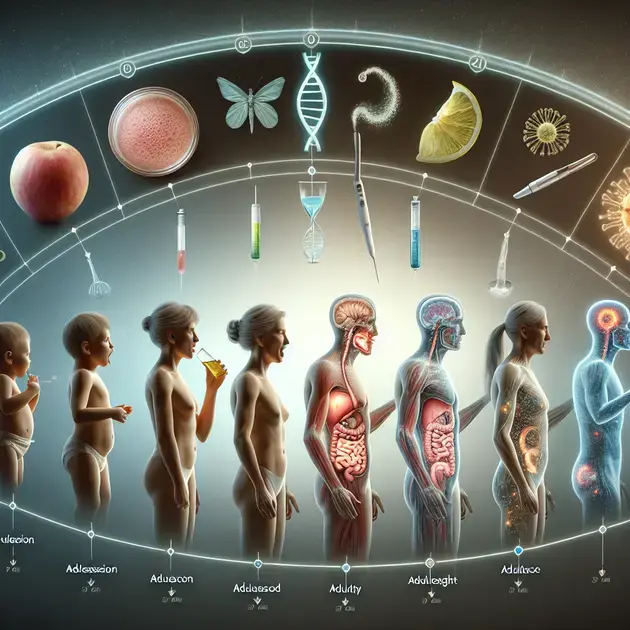Are you tired of dealing with the embarrassment of bad breath? In this comprehensive guide, we will delve into the ultimate solutions for tackling bad breath and understanding its underlying causes.
Every year, millions of people struggle with halitosis, commonly known as bad breath. From poor oral hygiene to more serious health issues, it’s essential to address the root of the problem to achieve long-lasting fresh breath.

The Impact of Poor Oral Hygiene on Bad Breath
Oral hygiene plays a crucial role in preventing bad breath. Poor oral hygiene practices, such as infrequent brushing and flossing, can lead to an accumulation of food particles and bacteria in the mouth. This buildup of bacteria releases foul-smelling gases, causing bad breath. To improve oral hygiene and combat bad breath, it is essential to follow a regular oral care routine.
A step-by-step guide to maintaining good oral hygiene includes brushing your teeth at least twice a day with fluoride toothpaste, flossing daily to remove plaque and food particles between teeth, and using an antiseptic mouthwash to kill bacteria. Additionally, it is recommended to visit a dentist for regular check-ups and professional cleanings to ensure optimal oral health.
One helpful resource for finding more information on oral hygiene practices and products is the American Dental Association (ADA) website. The ADA provides guidelines on proper brushing and flossing techniques, as well as information on ADA-approved oral care products that can help combat bad breath.
By taking steps to improve oral hygiene, individuals can effectively prevent bad breath and maintain fresh breath throughout the day.
Exploring the Link Between Diet and Halitosis
The foods we consume can have a significant impact on the occurrence of halitosis, commonly known as bad breath. Certain food items, such as garlic, onions, and strong spices, can contribute to foul-smelling breath by releasing strong odors during digestion. In addition, a diet high in sugary foods and beverages can create an environment in the mouth that promotes bacterial growth and leads to bad breath.
To address diet-related halitosis, individuals can make dietary modifications to reduce the consumption of foods known to cause bad breath. This may include incorporating more fresh fruits and vegetables, drinking plenty of water to help flush out bacteria and food particles, and avoiding excessive consumption of sugary and acidic foods.
An excellent resource for exploring the link between diet and halitosis is the Mayo Clinic website, which offers insights into how dietary choices can impact oral health and contribute to bad breath. The website provides information on foods that can help freshen breath and tips for maintaining a breath-friendly diet.
By making informed dietary choices and paying attention to the foods consumed, individuals can effectively manage halitosis and improve their overall oral health.
Uncovering Hidden Health Issues Related to Bad Breath
Bad breath can sometimes be a symptom of underlying health issues that may require medical attention. Persistent bad breath that does not improve with oral care practices could be indicative of conditions such as gum disease, respiratory infections, or digestive disorders. It is essential to recognize when bad breath is more than just a temporary issue and seek professional medical advice.
A step-by-step approach to uncovering hidden health issues related to bad breath includes consulting a healthcare provider or dentist to investigate potential underlying causes. They may conduct examinations, tests, or referrals to specialists to determine the root cause of chronic bad breath and develop a treatment plan.
One useful resource for learning about the health issues associated with bad breath is the National Institute of Dental and Craniofacial Research (NIDCR) website. The NIDCR provides information on oral health conditions that can contribute to halitosis, along with resources for finding healthcare providers who specialize in oral care.
By addressing any hidden health issues related to bad breath, individuals can receive appropriate treatment and improve both their oral health and overall well-being.

Exploring the Influence of Gut Health on Bad Breath
When it comes to bad breath, most people focus on oral hygiene and overlook a potential underlying cause: gut health. The gut microbiome plays a crucial role in overall health, including oral health. Studies have shown that an imbalance in the gut bacteria can lead to the production of foul-smelling breath. By improving gut health, individuals may experience a reduction in bad breath.
One way to promote a healthy gut is through diet. Consuming a variety of fruits, vegetables, and probiotic-rich foods can help maintain a balanced gut microbiome. Additionally, staying hydrated and limiting the intake of sugar and processed foods can also support gut health and potentially reduce bad breath.
Regular exercise can also have a positive effect on gut health, as it promotes proper digestion and helps to maintain a healthy balance of gut bacteria. Stress management techniques, such as meditation or yoga, may further contribute to gut health and, in turn, improve bad breath.
By exploring the connection between gut health and bad breath, individuals can take a holistic approach to addressing this common issue. Incorporating gut-friendly habits into daily life may not only improve oral odor but also support overall well-being.
Unveiling the Relationship Between Stress and Halitosis
Halitosis, or chronic bad breath, can be a distressing condition for many individuals. One often overlooked factor that can contribute to halitosis is stress. When the body experiences stress, it can lead to an increase in cortisol levels, which may impact the balance of oral bacteria and result in bad breath.
Finding effective ways to manage stress is crucial in addressing halitosis. Adopting relaxation techniques, such as deep breathing exercises or mindfulness practices, can help lower cortisol levels and promote a sense of calm. Regular physical activity and adequate sleep are also important in reducing stress and potentially improving bad breath.
In addition to managing stress, maintaining good oral hygiene habits is essential in combating halitosis. Brushing and flossing regularly, using mouthwash, and staying hydrated can all contribute to fresher breath. Visiting a dentist for regular check-ups and cleanings is also recommended to address any underlying oral health issues.
By unveiling the relationship between stress and halitosis, individuals can take proactive steps to both manage stress levels and improve oral odor. A holistic approach that addresses both internal and external factors may be key in achieving long-term relief from chronic bad breath.
The Connection Between Hormonal Changes and Oral Odor
Hormonal changes, such as those experienced during puberty, pregnancy, or menopause, can have a significant impact on oral health and odor. Fluctuations in hormone levels can affect the body’s natural processes, including saliva production and the balance of oral bacteria, potentially leading to changes in breath odor.
During hormonal shifts, individuals may notice an increase in bad breath that is difficult to eliminate with regular oral hygiene practices alone. It is important to understand the role that hormones play in oral health and to address any concerns with a healthcare provider.
While hormonal changes are a natural part of life, there are steps that individuals can take to manage oral odor during these periods. Maintaining a consistent oral hygiene routine, including brushing, flossing, and using mouthwash, is essential in controlling bad breath. Drinking plenty of water and avoiding foods that exacerbate oral odor can also help mitigate any hormonal effects on breath freshness.
Understanding the connection between hormonal changes and oral odor can empower individuals to take control of their oral health and seek appropriate solutions. By staying informed and proactive, individuals can navigate hormonal fluctuations with confidence and maintain fresh breath throughout all stages of life.
Conclusion
Exploring the influence of gut health on bad breath reveals a vital connection between overall well-being and oral odor. By understanding the role of the gut microbiome in producing foul-smelling breath, individuals can prioritize improving gut health through a balanced diet, hydration, and regular exercise. Managing stress through relaxation techniques and maintaining good oral hygiene habits are key in combating halitosis effectively.
Unveiling the relationship between stress and halitosis underscores the impact of cortisol levels on oral bacteria balance. Adopting stress management techniques and promoting relaxation can significantly contribute to reducing bad breath. A holistic approach that addresses internal and external factors is crucial for long-term relief from chronic bad breath.
The connection between hormonal changes and oral odor highlights the importance of understanding the impact of fluctuations in hormone levels on saliva production and oral bacteria balance. Maintaining a consistent oral hygiene routine and staying hydrated are essential in controlling bad breath during hormonal shifts. Empowering individuals to take control of their oral health and seek appropriate solutions can help them navigate hormonal fluctuations confidently and maintain fresh breath throughout all life stages.



